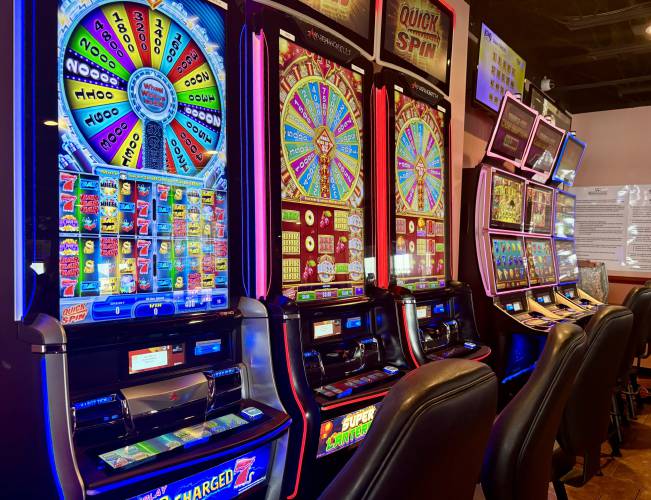New Hampshire gaming halls with historic horse racing (HHR) licenses may soon replace their machines with slot machines, gaining a seven-year advantage over future competitors in the state’s expanding casino market.
Senate Bill 83 proposes the legalization of slot machines, which appear similar to HHR machines from a player’s perspective but operate differently behind the scenes and come with lower operational costs.
Sen. Tim Lang, the bill’s primary sponsor, said the legislation aligns with recommendations from last year’s study committee on charitable gaming, in which he participated.
A recent gaming report found that running HHR machines in New Hampshire costs 6% to 18% more than operating slot machines.
Currently, the state has capped the number of casinos with HHR licenses at 18, with the moratorium set to lift in 2031. If slot machines are legalized, only casinos with an HHR license will be able to introduce them, while others will have to wait until the restriction is lifted.
New Hampshire currently has 10 operational casinos offering HHR, with four additional applications pending approval from the lottery commission.
By the end of fiscal year 2024, the state had nearly 2,000 active HHR terminals. That number is projected to almost double to 4,300 by the end of fiscal year 2025 as new and expanding facilities come online.
State officials estimate that once slot machines are operational, they could generate an additional $63.8 million in annual revenue.
If passed, the bill would allow only HHR-licensed casinos to introduce slot machines. HHR machines have already proven to be more profitable than traditional table games like poker or blackjack. In fiscal year 2024, New Hampshire casinos generated $128.9 million from HHR machines, compared to $40.4 million from other games of chance.
Slot machines operate using simpler and less expensive technology, generating random numbers for each spin. In contrast, HHR machines rely on a vast database of past horse races, requiring more complex programming.
Since slot machines operate at a faster pace than HHR machines, critics argue they may increase the risk of problem gambling.
To address this concern, SB83 includes a provision for a statewide self-exclusion policy. Currently, individuals who want to avoid gambling must request exclusion at each individual casino. This allows them to continue gambling at other locations within the state.
The proposed policy would automatically apply self-exclusion statewide, barring individuals from all casinos once they opt into the program. Similar policies in other states have proven more effective in helping those seeking to prevent problem gambling.



